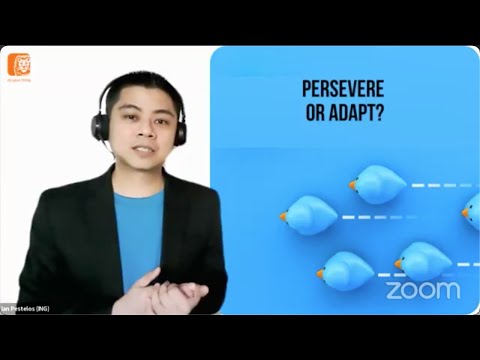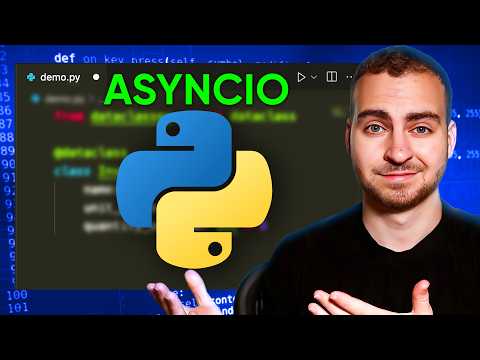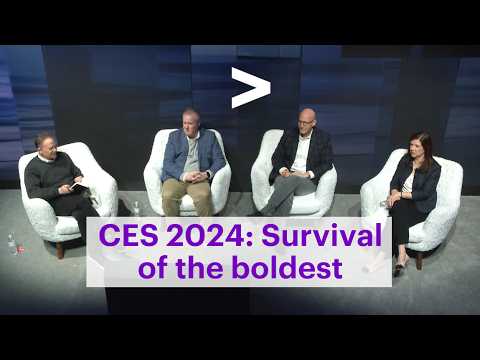Growing an Agile Workforce for PH Economic Recovery

hey i do like the the videos that we were presented today earlier with the message of senator angara and also of course secretary john nasan you may pick up a lot of keywords there already that we can we are already talking about you know for the entire three days you have digital transformation you have digitization blockchain and all the other technologies that we're talking about and maybe today i wanted to talk about the foundation of all of these because we can be marred by many technologies you'll always pick from the new tech that's coming out of different parts of the world but what but what is foundational to this is people so i'm going to talk to you today about agile workforce and how this will help us i i think with the and i believe would really help us grow towards you know a digitized philippines or transform our organizations and and uh have our economic recovery in the next years to come so a bit of context ing of course is in the philippines we've launched our we were the first fully digital mobile bank in the philippines uh since 2018 and uh globally also we were one of the most innovative in terms of banking and then ing is often cited as one of the boldest organizations in banking to take an agile transformation globally since 2016. and maybe a bit of background agile has been around in the software development industry but ing is taking this has taken this into the next level by bringing that onto operations onto support functions to hr and all the other functions within the organization so it's more holistic as a transformation mechanism now you might hear agile as being fast but also today i'd like to give you a different perspective to not just agile as fast but also agile as a culture of the organization so in 2019 our largest shared services location in manila which services our wholesale and retail banks in europe and asia in the philippines also started this transformation in almost all of its departments in in the philippines software development operations i.t support support functions finance hr customer operations customer support all of those things and then after a year in in 2020 my team of agile coaches has already uh on boarded or have supported more than 50 of the teams to transition to this agile ways of working it was a hazy year you know when we did this transformation because it's not just tackling the technology itself although it's a very core part of it but you're also tackling the hearts and minds of people who are who has to go through a transformation on how they work together how they collaborate how they define their targets how they experience work in general so agile teams are typically characterized as teams that are co-located that's first working together physically in the same location and this was 2019 agile teams are also number two small stable and nimble have been collaborating for a long time and have a lot of experiences in learning from each other sabingani secretary of nasa earlier collaboration and learning and then third we're very much goal driven so the teams have shared goals that they work together to achieve within a point in time or within their their own respective targets now covet 19 came so now we're now questioning the foundation of agile itself in the organization which is co-locations because now people are suddenly remote and on march 2020 and specifically friday night of march 15 uh you know march 13 metro manila is put into a lockdown due to covet 19. so it was announced on the 13th on the 15th it will start the week after no more office no more office no more going to the office no more physical collaboration we're all locked down in our own locations now teams who are used to working physically now have to adapt now we are suddenly remote and many of the tools that they used to work with both technology and tactile and and and emails and all of those stuff the computers and everything it's it's practically gone you have to reinvent how you now use those tools given that you cannot see your team leader in front of you or your colleague on your side you cannot say hey you know i want this check that's not there anymore so we have to rethink how we are working together as an organization including the tools of course including the collaboration and all the support mechanisms around it no more white boards no more open spaces for meetings there's a lot of things that are practically gone now this is even more complicated if you imagined it to the teams that has to work through different departments because if you're just working with your team of course it's easy to just get in touch you probably have chat groups already if you may but when you're working with different departments that it then it becomes it becomes a lot more difficult because you don't need them in water cooler anymore you don't get to ride in the elevator with them and have chit chat so practically that's also getting blurred in a lot of ways so the physical work spaces are gone practically there was no office to speak off so this was a bit of a complication because for for agile coaches which is my team back then before i i started heading the transformation group we were shocked of course with events and we had to scramble no so our remit as a team is of course to help the organization adapt to ways of working and this time it was very abrupt there wasn't as much time to plan as compared to the agile transformation we had in the previous years and we have to scramble to find ways to stabilize the way of working that went on suddenly remote bear in mind that even my team we are still figuring out how we also work together so we need to move on to it quickly so that we can support others as well it's like rebuilding the plane in mid-air or subbing as a flight a flight snap and you know put oxygen mask on you first so that you can help others for us it's the same thing and we have to do it fast so we were wondering what should we do well we can continue executing our as planned but that isn't the most valuable thing to do at that particular moment we can also just go with the flow and see what the urgent request will come out from the teams with a risk that we might become short-sighted and tactical so there was really no plan in place with the big disruption a sudden disruption like this and given where agile coaches were expected to also adapt because you know we cannot teach what we do not practice so we also have to really shift how we're looking at our strategy and our approach to the business in a matter of day we postponed our plan priorities in road maps in favor of responding to the needs of the teams in virtual environment now we're talking about what virtual tools are available for all 2000 employees what are the leadership skills that needs to be changing or adapting on this new way of working if you're the team lead you don't have you know your team anymore that you can just talk to and then you can just rally behind the target that's no longer there so it's a lot a little more challenging for leaders as well and this is also important the third one onboarding new staff how do you do that in a remote setting it's not a familiar environment anymore both for the staff and also for the organization and then lastly how do you collaborate no in a virtual setting um that's uh the the challenges that we were having at that particular week when we first started getting remote now we scrambled together to call it the 30-day stabilization plan before we can execute the transformation any further the agile transformation the digital transformation if you may as well we need to respond to the most pressing need first which is where we are in terms of virtual collaboration so my team of coaches were successful to recalibrate our own way of working within the team appropriately so because of course what do you expect from the group of agile coaches but this was not this is not the most remarkable thing that surprised us what surprised us a lot is that customer operations our chat systems our technology teams software development even i.t support
our premises and facilities management even the guards if you may in the building the teams have stabilized their way of working pretty fast it was really fast and within that week we were able to see already fast response from those groups they were quick to adapt to find ways to collaborate quickly and effectively and then they started testing out different tools and approaches that is acceptable to the bank of course given of our regulatory nature so that those teams could deliver their services timely accurately and safely as what our customers and partners in the organization would expect out of us so for example so teams started leveraging existing digital tools much more than they did before so even if you know as ing were fully digital as a bank uh in the philippines and also in europe you know we have a lot of digital products already we're pretty much in the philippines starting out shared services hub where the work is usually on site so this is a little challenging for us even if you say you know we have a lot of tools available however the teams were able to find ways to have fun online even they do virtual virtual retrospectives they do their meetings online and then if you're familiar with agile teams you're familiar with let's say post-its no in in agile we use it a lot there you start brainstorming ideas with post-its you put it on a whiteboard you draw things up in there but then in a virtual setting that's no longer in place so we had to adopt on using let's say powerpoint very basic tools that we can show on the screen and we can start uh talking to each other about we even use excel we even use notepad so there was a lot of experiments going on and this may seem a piece of cake right looking back but we'll put it into context and perspective back then on the first week of the quarantine of the lockdown i'm not sure with you but we just don't know how to buy groceries as a very basic need we don't even know whether we can go out and buy something from the store in 711 or in mini stop so there was a lot of uncertainty back then uh you don't know whether you know can you order online for sm or can i go even to sm um can i use lazada for this and lazada doesn't have as much capabilities today as compared they were before they were also quick to adapt but at the same time us in the in the society is also struggling to find ways to be able to respond to what we need given the sudden remote setting so our teams also by the way have never been fully remote before so it was also quite an uncertainty for us what's interesting to note is that maybe in addition to the context i've shared earlier after three to six months and this is pretty fascinating we found out that in the three to six months time frame that we see the kpis the business performance of the teams internally in terms of our service delivery in terms of productivity a lot of the teams actually were able to either stabilize their performance or some even increased it which is a little fascinating because if you're suddenly remote and you get you don't get to talk to each other then there must be something there that somehow affected how people are able to be more productive while looking at the ways they can collaborate at a very deliberate time so it was quite a fascinating result that we saw there and and our employees that has to collaborate on site on the other hand they were able to create what we call ad hoc working groups or pop-up squads so you see hr reaching out to another department hey you know can we work on this together rather than us in isolation so there were the virtual water coolers now in the virtual elevator where you can have those conversations so the teams were pretty fast and we were surprised because we were even planning for a 30-day stabilization when in fact in one to two weeks a lot of the teams are already quite stable of course there are still teams that struggled especially the ones who for example did not have a stable way of working or agile way of working back in the office and they needed some more support i would say so not everything but there's a lot of teams that are able to adapt pretty quickly so what did we realize here we thought that agile was a lot about the practices that we've built in being co-located but what we found was that we were able to also build a collaborative culture that responds fast to change agility was built into the teams as they work together regardless if it's physically or virtually so physical closeness was not really the point it was the mental and the professional closeness of the team that bands together is what matters more we also realize that stable teams have been proven valuable you know you stay around as a team for maybe six months to a year however we also found that on-demand teaming or what we call dynamic teaming can also work if collaboration across organization has been embedded into the culture itself so it is also not just the goals that mattered so we thought you know just give them lofty goals they'll work together but then suddenly it's it's remote what do you do we realize that the workforce that we have with a strong sense of team purpose will find ways to change their methods to achieve their objectives so this was a really big realization that we have created a culture out of the transformation not just a set of practices that we have to go through now you may ask why does it matter you know i would say that may seem like quite a story but then what we need to understand is that complexity is the new normal complexity and technology complexity in our healthcare system complexity and how we relate to each other political systems social systems educational systems all of these right now are encountering a lot of complexity and volatility that we all need to respond on to that's why i congratulate the organizing team for for putting this conference together because now we're starting to have a lot more conversations about those things that matter how do we respond how do we leverage technology technology is not the point the point is solving problems for society using the talents that we have in the organization and as a whole in the society as a whole so having this complexity as the new normal you you need to understand that as organizations we need to respond fast and for us in ing we realize that responding in teams is the way to go now if you look past this pandemic as well you might realize that yeah you know lockdowns later on it will go away everyone has vaccines but if you look past this pandemic we are likely to find hybrid work becoming the norm so if you thought working from home was messy that's what the wall street journal headline would say wait until you get to hybrid work and we feel this is going to be impacting a lot as well in terms of collaboration in terms of working together because now not just the complexity of technology tools and collaborations is what matters you also have to worry about scheduling you also already have you know how to fill in your workspaces even how to design your workspaces do you design workspaces thinking everyone will be back if people have have already enjoyed the fruits of working from home are we able to bring them all back in the office just like that i think there will be hybrid work to look into in the next stage of our our normal i would say so we will find ourselves in a lot more disruption after this year it's not just health care disruption it's not just covet and pandemic disruption you'll see a lot of startups coming in they've been around for a while now you will see a lot of world problems climate change that we need to respond to we need our workforce to respond appropriately and respond lightning fast now you might ask okay so sure there will be those complexities will respond um maybe what i see now is a lot of the organizations in the philippines are starting to take their agile transformation and digital transformation a lot faster you know i'm seeing that a lot and rightly so because we need to have those fast response we've seen a taste of it in the last year but we cannot stand on the same ground in the next year by just being tactical we need to be more strategic about it so how can we build this into our organizations how do we build our organizations towards agility so let me offer three things that's the last point one we need to rethink how we organize our organizations it's not just a matter of bringing in experts bringing in warm bodies it's not about numbers game anymore in terms of the workforce you also need to leverage those individuals to do more by putting them together in a team with strong relationships and strong sense of purpose in this case i would encourage organizations to start considering teams as the most basic foundation or basic unit of your organization and not just any teams by the way it is also about teams with strong sense of purpose they are purpose driven and they respond to change over following a plan and they're empowered to take the lead now second point i mentioned this earlier we need to start responding to change over following a plan i cannot stress this a lot more because this is the biggest i would say the biggest challenge with agile transformations for all of the organizations i've worked with before so i was consulting as well before i got to ing and this is a challenge it's not just here in the philippines not just in southeast asia but globally why is it challenging it's because we're very much grounded on the traditional management thinking where you design the work and then you give the work to someone who will do it for less costs and maybe scale that but the problem you have there is now you're detaching the purpose of the work from the execution of the work so now we have to get those teams together look at the same purpose together and then allow them empower them to respond to change like what i have mentioned earlier with the teams that we had in ing so the traditional management thinking needs to be revisited or needs to be overhauled i would say you would think that the map is not the territory sometimes we think that this is the plan but when we start looking it onto the ground it's different and we need to revisit our plans by the way i'm not saying don't plan i'm just saying that planning is important the plan is important but you need to involve evolve the plan itself based on the changes that we see on the ground and last point on this slide i would just quote mike tyson here everyone has a plan until they get punched in the mouth everyone has a plan until they get punched in the mouth in the next few years we will get a lot more of these punches and we need to respond to these punches rather than trying to still stick to what we have planned for before entering the ring now a last point i want to make is that we need to as leaders and i know a lot of our attendees here in the room i'm seeing a lot of attendees already in zoom i'm pretty sure we have a lot more in our facebook live we need to as leaders as managers grow an environment where people and teams will thrive and this is the job of management to manage the system not the people that means we need to revisit our performance management systems our rewards and recognition systems how we set up our office spaces how we set up our policies how we respond to a problem that the organization has to customer demands how do we organize tech and operations together how do we organize the entire value chain we need to rethink that and then nurture the environment so that we have uh an environment where where teams could thrive my last point on this slide and i want to quote you know a famous uh uh i'm not sure if he's an author but i'd like to quote this because you know there's a reason why i have a wilted flower or plant on the screen if the flower does not bloom and you can think of the flower as your work force if the flower does not bloom fix the environment where it is planted and not the flower have a think about that because often we try to go direct to the people and feel that they can do more and you know hit them with a lot of tasks a lot of things when the environment needs to be the one changing as well so in order to have these productive teams you need to have that environment also also looked into and evolved as well to be conducive to teams so let me leave you with this agility is a culture and to borrow one of my agile coaches words you know that you have transformed your organization to an agile way of working when you don't talk about agile anymore so i hope you have something in there from my talk today consider building teams building the right environment for the teams adopting our management styles to be conducive to those teams and give them a strong sense of purpose so that they can respond to change rather than following a plan
2021-08-10 03:45


